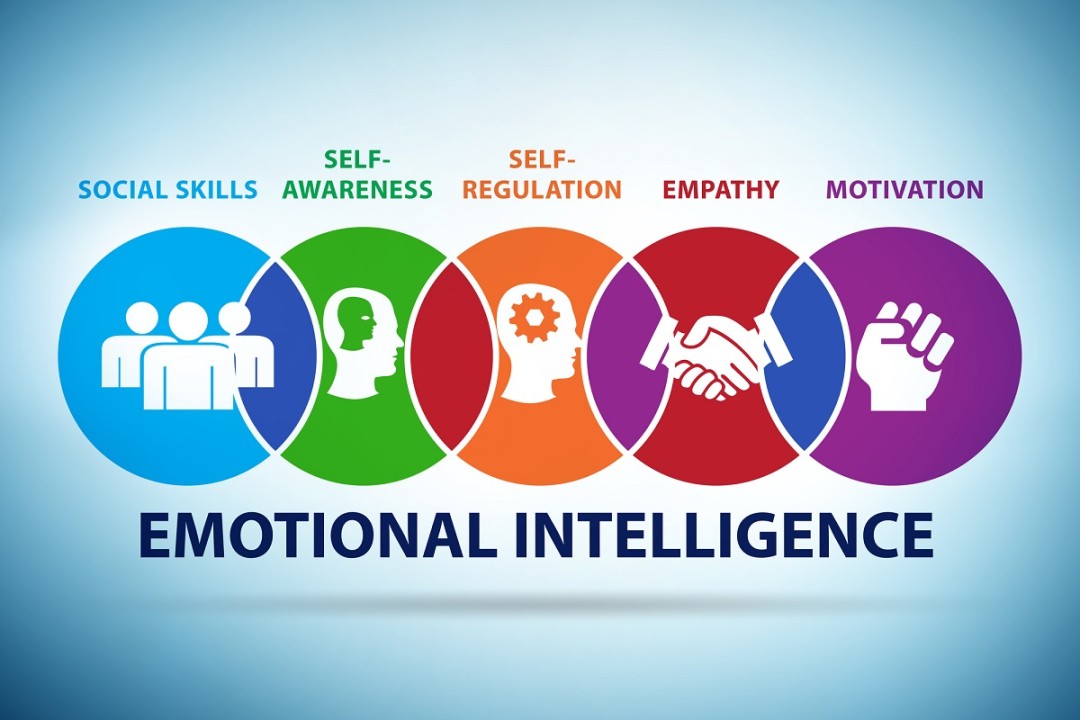It is the ability to recognize, understand, and manage both our own emotions and those of others. It plays a critical role in various aspects of life, including interpersonal relationships, professional success, and overall well-being. This complete guide explores the concept of emotional literacy, its components, benefits, and strategies for developing it.
Understanding Emotional Intelligence
It comprises four main components: self-awareness, self-management, social awareness, and relationship management. Self-awareness involves recognizing and understanding our own emotions, while self-management involves effectively managing those emotions. Social awareness is the ability to understand the emotions of others, while relationship management involves using social intelligence to build and maintain positive relationships.
The Benefits of Emotional Literacy
Emotional literacy has numerous benefits, both personally and professionally. Individuals with high EI are better able to navigate social situations, manage stress, and communicate effectively. In the workplace, social intelligence is linked to leadership effectiveness, teamwork, and overall job performance. Additionally, high EI is associated with improved mental health and well-being.
Developing Social Intelligence
While some aspects of social intelligence are essential, it is possible to develop and enhance EI through practice and self-awareness. Strategies for developing social intelligence include mindfulness, self-reflection, and seeking feedback from others. It is also important to practice empathy, active listening, and effective communication skills.
Emotional Literacy in Leadership
Leaders with high emotional intelligence are more effective in inspiring and motivating their teams. They are better able to understand the emotions of their team members and tailor their leadership approach accordingly. Leaders with high EI are also more proficient at managing conflicts and building strong, cohesive teams.
Applying Emotional Literacy in Daily Life
Social intelligence is not just relevant in the workplace; it is also crucial in our personal lives. By being more aware of our own emotions and those of others, we can improve our relationships and overall quality of life. Practicing empathy, active listening, and emotional regulation can lead to more meaningful and fulfilling connections with others.
Cultivating Self-Awareness
Self-awareness is a foundational element of emotional intelligence, as it enables us to recognize and understand our own emotions. Cultivating self-awareness involves paying attention to our thoughts, feelings, and reactions in different situations. Practices such as journaling, meditation, and self-reflection can help enhance self-awareness. By becoming more aware of our emotions, we can better understand why we feel a certain way and how our emotions influence our behavior.
Managing Emotions Effectively
Self-management is another crucial aspect of emotional literacy, involving the ability to manage our emotions in a healthy and constructive manner. This includes regulating our emotions, controlling impulses, and adapting to changing circumstances. Techniques such as deep breathing, mindfulness, and stress management can help improve self-management skills. By learning to manage our emotions effectively, we can avoid impulsive decisions and respond to challenging situations in a more thoughtful and rational manner.
Empathy and Social Awareness
Empathy is the ability to understand and share the feelings of others, and it plays a key role in social awareness. Social awareness involves recognizing and understanding the emotions of others, as well as the dynamics of social situations. Developing empathy and social awareness can improve our interpersonal relationships and enhance our ability to collaborate and communicate effectively with others. Practicing active listening, putting ourselves in others' shoes, and being attentive to nonverbal cues are ways to enhance empathy and social awareness.
Building Strong Relationships
Relationship management is the final component of emotional intelligence, and it involves using our awareness of our own emotions and those of others to manage interactions successfully. Building strong relationships requires effective communication, conflict resolution skills, and the ability to inspire and influence others positively. By developing these skills, we can cultivate positive and productive relationships in both our personal and professional lives.
Continued Growth and Development
Emotional literacy is not a fixed trait but rather a skill that can be developed and improved over time. It requires a commitment to self-improvement and a willingness to continuously learn and grow. By incorporating the principles of social intelligence into our daily lives, we can enhance our well-being, improve our relationships, and achieve greater success and fulfillment in all areas of life.
Conclusion
Emotional intelligence is a vital skill that can enhance every aspect of our lives. By developing our EI, we can improve our relationships, succeed in our careers, and lead more fulfilling lives. By recognizing the importance of social intelligence and actively working to develop it, we can solve our full potential and achieve greater success and happiness.





Comments